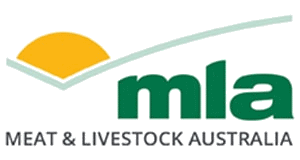Foot-and-Mouth Threat Level Raised to ‘Medium’ Across the UK
Farmers Urged to Increase Biosecurity Measures Following Heightened Risk Assessment
Livestock farmers are being urged to bolster their biosecurity protocols following an official increase in the threat level for foot-and-mouth disease (FMD) from ‘low’ to ‘medium’.
The Department for Environment, Food & Rural Affairs (Defra) announced the change earlier today, citing a heightened risk of the highly contagious animal disease entering the country.
Defra is advising all livestock keepers to review and strengthen their biosecurity measures immediately. This includes:
- Strict control of access to farms and animal housing: Limiting unnecessary visitors and ensuring thorough disinfection of vehicles and footwear.
- Enhanced hygiene practices: Implementing rigorous cleaning and disinfection protocols for equipment, vehicles, and personnel.
- Careful sourcing of animals and animal products: Ensuring all new livestock are sourced from reputable, disease-free sources and adhering to all import regulations.
- Vigilant monitoring of animal health: Regularly checking livestock for any signs of foot-and-mouth disease, such as blisters on the mouth, feet, and teats, excessive salivation, and lameness.
- Prompt reporting of any suspicious signs: Contacting a veterinarian or the Animal and Plant Health Agency (APHA) immediately if any unusual symptoms are observed.
A Defra spokesperson emphasised the importance of proactive measures: “The increase in the foot-and-mouth disease threat level to ‘medium’ is a precautionary measure to reflect the evolving situation in Europe. While the risk remains that the disease could enter the UK, taking robust biosecurity measures is the most effective way to protect our livestock and the wider agricultural economy. We urge all farmers to remain vigilant and implement the necessary steps to safeguard their animals.”
As the situation in Europe continues to be monitored closely, UK farmers are bracing themselves and implementing stricter measures to protect their livelihoods and the nation’s livestock from the potentially devastating impact of foot-and-mouth disease.

